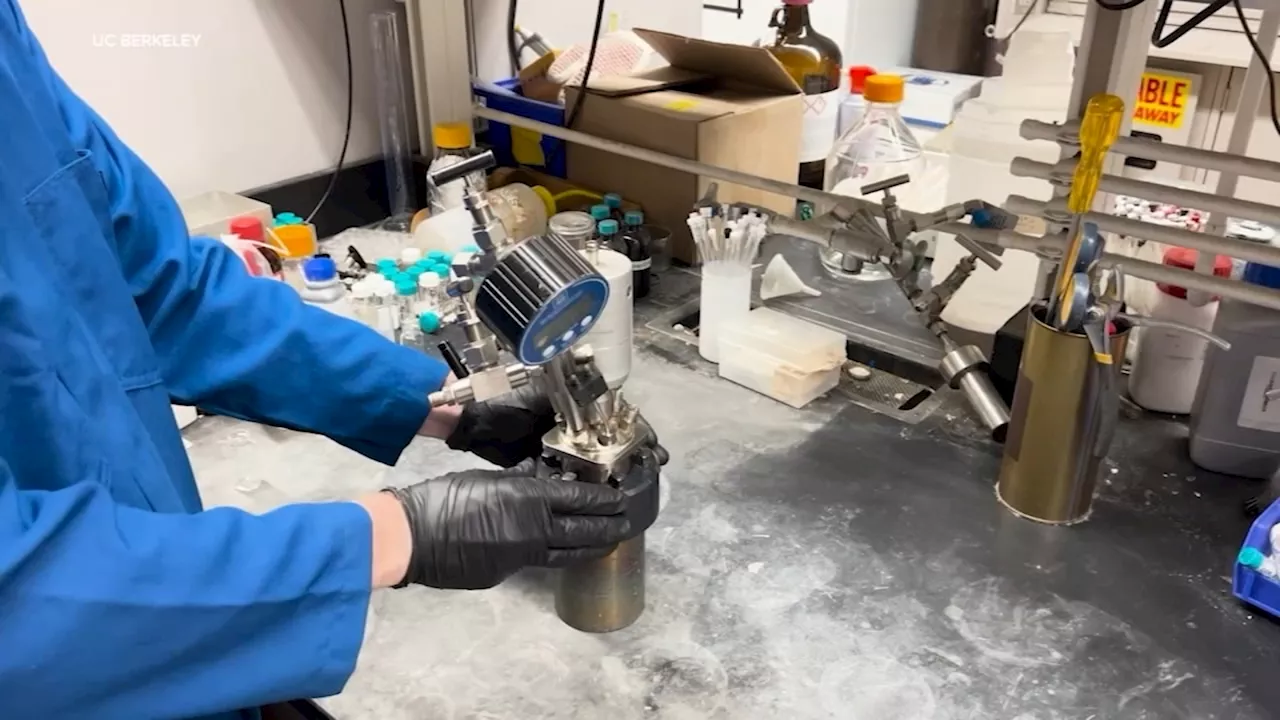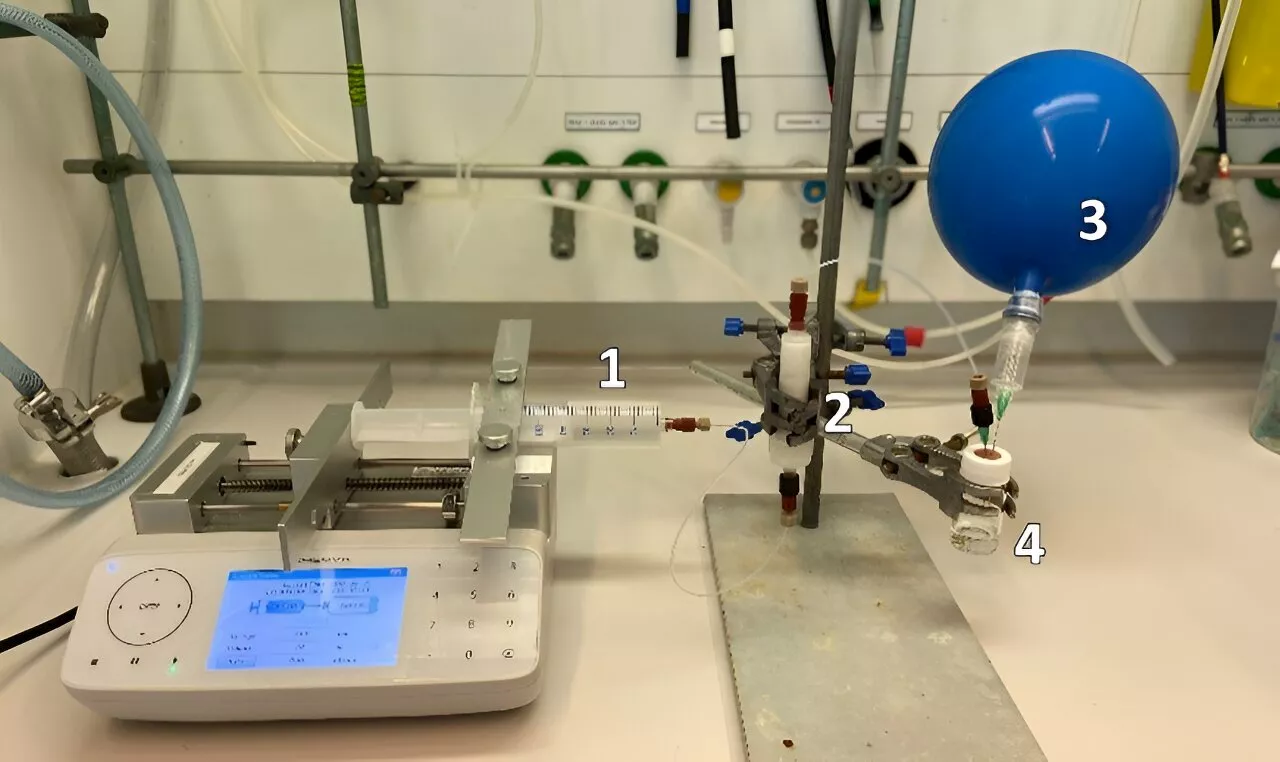It has only recently been discovered that single-celled organisms (bacteria and archaea) also have histones—proteins that structure DNA. Now, Leiden Ph.D. candidate Samuel Schwab has found that the histones in these organisms are much more diverse than previously thought.
Chemists discover new ways in which single-celled organisms organize their DNA retrieved 23 September 2024 from https://phys.org/news/2024-09-chemists-ways-celled-dna.html
This document is subject to copyright. Apart from any fair dealing for the purpose of private study or research, no part may be reproduced without the written permission. The content is provided for information purposes only.Dec 5, 2019 Use this form if you have come across a typo, inaccuracy or would like to send an edit request for the content on this page. For general inquiries, please use ourThank you for taking time to provide your feedback to the editors.
Your feedback is important to us. However, we do not guarantee individual replies due to the high volume of messages.to let the recipient know who sent the email. Neither your address nor the recipient's address will be used for any other purpose. The information you enter will appear in your e-mail message and is not retained by Phys.org in any form.Get weekly and/or daily updates delivered to your inbox.
Physics News Science News Technology News Physics Materials Nanotech Technology Science
United States Latest News, United States Headlines
Similar News:You can also read news stories similar to this one that we have collected from other news sources.
 UC Berkeley chemists discover new way to break down common plasticsUC Berkeley chemists say the new method can take apart some of the most difficult plastics to deconstruct, such as plastic water bottles, milk jug, and more.
UC Berkeley chemists discover new way to break down common plasticsUC Berkeley chemists say the new method can take apart some of the most difficult plastics to deconstruct, such as plastic water bottles, milk jug, and more.
Read more »
 Chemists achieve PFAS-free synthesis of fluorinated pharmaceutical and agrochemical compoundsChemists at the University of Amsterdam have developed a method to furnish a range of molecules with a trifluoromethyl group attached to a sulfur, nitrogen or oxygen atom. Their procedure, which is published in Science, avoids the use of PFAS reagents.
Chemists achieve PFAS-free synthesis of fluorinated pharmaceutical and agrochemical compoundsChemists at the University of Amsterdam have developed a method to furnish a range of molecules with a trifluoromethyl group attached to a sulfur, nitrogen or oxygen atom. Their procedure, which is published in Science, avoids the use of PFAS reagents.
Read more »
 Discovery of glass-forming liquid electrolytes as a new liquid categoryChemists have found a novel glass-forming liquid electrolyte that exhibits specific lithium-ion conduction.
Discovery of glass-forming liquid electrolytes as a new liquid categoryChemists have found a novel glass-forming liquid electrolyte that exhibits specific lithium-ion conduction.
Read more »
 Chemists create industrially important alkyl amines from dinitrogen and alkenesA critical chemical bond can be assembled using dinitrogen (N2)—a molecule freely available in the air around us—chemists at RIKEN have shown in a new article published in Nature.
Chemists create industrially important alkyl amines from dinitrogen and alkenesA critical chemical bond can be assembled using dinitrogen (N2)—a molecule freely available in the air around us—chemists at RIKEN have shown in a new article published in Nature.
Read more »
 Chemists find new pharmaceutically active substances from billions of newly combined moleculesNowadays, there's lots of buzz about spectacular new medical treatments, such as personalized cancer therapy with modified immune cells or antibodies. Such treatments, however, are very complex and expensive and so find only limited application.
Chemists find new pharmaceutically active substances from billions of newly combined moleculesNowadays, there's lots of buzz about spectacular new medical treatments, such as personalized cancer therapy with modified immune cells or antibodies. Such treatments, however, are very complex and expensive and so find only limited application.
Read more »
 Chemists create gel to prevent leaks and boost lithium-ion battery lifeA new type of gel, developed by chemists at the Martin Luther University Halle-Wittenberg (MLU), could help to make lithium-ion batteries safer and more powerful. The gel is designed to prevent the highly flammable electrolyte fluid from leaking.
Chemists create gel to prevent leaks and boost lithium-ion battery lifeA new type of gel, developed by chemists at the Martin Luther University Halle-Wittenberg (MLU), could help to make lithium-ion batteries safer and more powerful. The gel is designed to prevent the highly flammable electrolyte fluid from leaking.
Read more »
